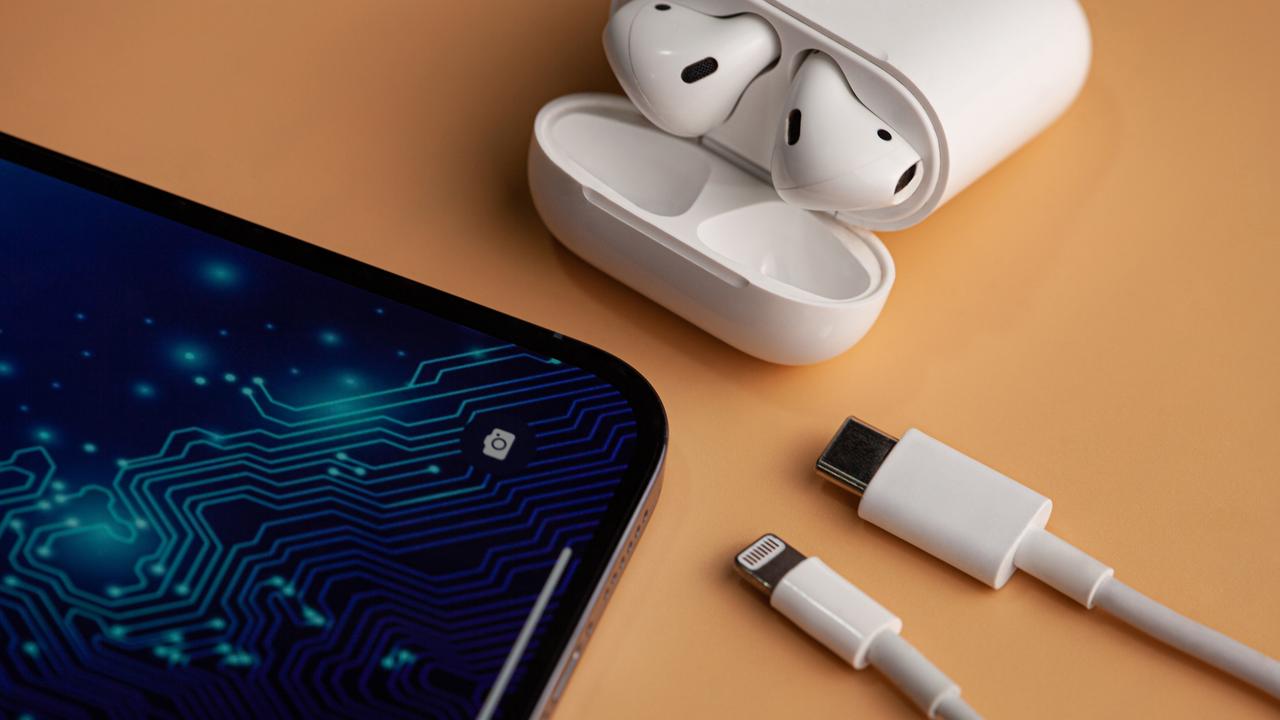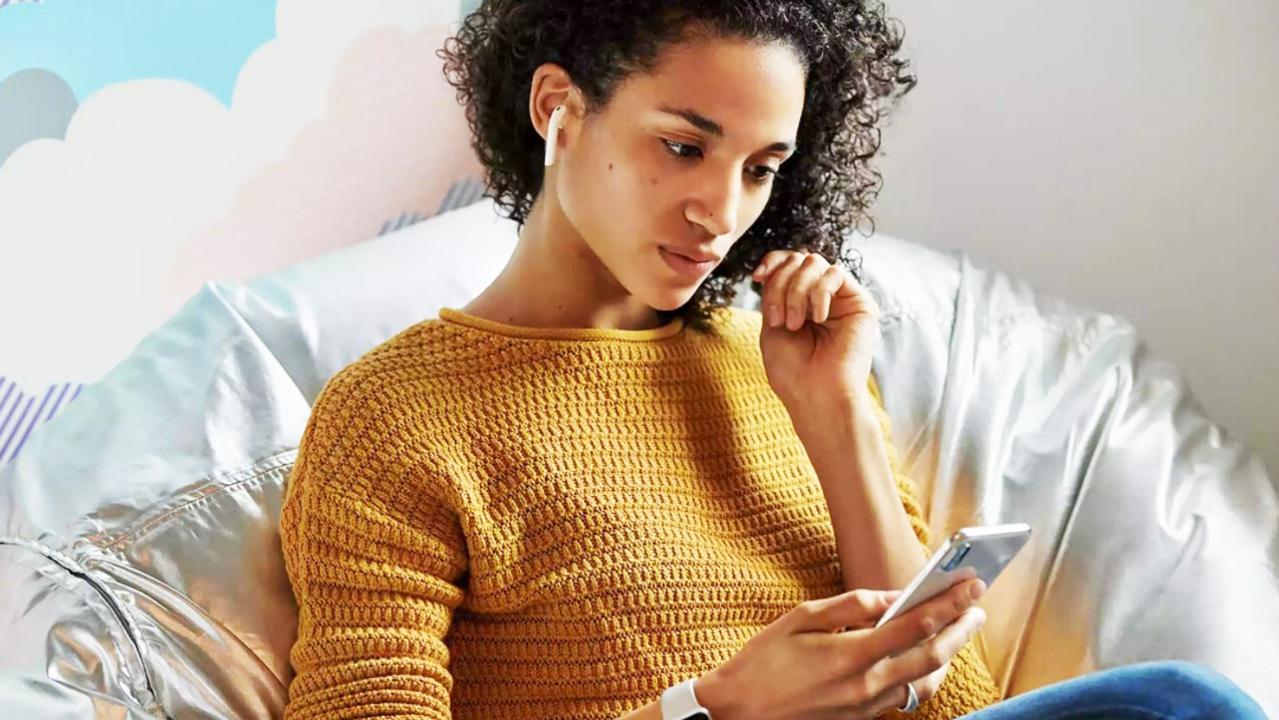Doctor Zac Turner reveals whether AirPods can really cause cancer
A viral Instagram video has sparked panic about the safety of a very common item millions of us just can’t live without.
Welcome to Ask Doctor Zac, a weekly column from news.com.au. This week, Dr Zac Turner explores whether AirPods can cause cancer.
QUESTION: Hi Dr Zac, I recently saw an Instagram video of a doctor claiming the radiation from wireless earbuds/AirPods can give you cancer. I thought it sounded pretty crazy and not believable at first, but the video actually shows the levels of radiation emitted from wireless headphones. I’m sure it can’t be a good thing … I listen to music all day every day, at work, at the gym, on the train – am I actually risking my life with this?! – Jordan, 32, St Kilda, Victoria
ANSWER: Hi Jordan. Great question. Even I have these videos pop up on my Instagram feed occasionally. We all love a good conspiracy theory now and then. Whether it’s the latest health fad that promises to change your life or viral videos warning you about hidden dangers in everyday items, there’s always something new to worry about — but this one is truly a first.
Now, there is a possibility your headphones could be doing you harm, but not for the reason you think. Before you toss your earbuds in the bin, let’s break it down and get to the bottom of it.
Spoiler alert: Your favourite tunes could be secretly damaging your hearing, and that’s a far more immediate concern than any “radiation” from your AirPods.
What about that ‘radiation’?
Let’s start with the basics: What kind of “radiation” are we even talking about when it comes to your wireless earbuds? The word radiation might sound a bit dramatic, but not all radiation is created equal.

There are two main types of radiation: Ionising and non-ionising.
Ionising radiation, like X-rays and the kind from nuclear reactors, is the stuff that can actually cause damage to your DNA. But fear not – getting an X-ray won’t harm you. This is because the amount of radiation used is low and targeted, and while doctors step out of the room, it’s simply a precaution to limit their exposure to even minimal radiation — your safety is the priority, and the risk is extremely small.
Non-ionising radiation (like that from Bluetooth and Wi-Fi) is much lower in energy, so it’s not capable of doing the same kind of damage to your cells. The radiation from your wireless earbuds? That’s non-ionising. So, no, they’re not going to microwave your brain or anything dramatic like that.
Can bluetooth radiation really cause cancer?
In short, probably not.
Several large health organisations have investigated the potential risks of Bluetooth radiation, and so far, they haven’t found any solid evidence linking it to cancer.
The World Health Organisation (WHO) and the International Agency for Research on Cancer (IARC) have both stated that low-level electromagnetic fields, like the kind emitted by Bluetooth devices, are unlikely to be carcinogenic.
In fact, the IARC has classified radiofrequency electromagnetic fields as “possibly carcinogenic to humans”, but that’s based on very limited evidence — and we’re talking about the same category that includes things like pickled vegetables.
So, while there is a little bit of suspicion about radiation from wireless devices, the science currently suggests that it’s not something you need to lose sleep over. Your AirPods aren’t going to give you cancer.

The real danger: Music at too high a volume
Now, while you’re not likely to develop cancer from your wireless earbuds, there’s another issue that’s more of an immediate concern — and that’s the risk of hearing loss from listening to music too loudly for too long.
You know that satisfying thump of bass or that rush of sound when you crank up your favourite playlist? Well, it turns out that blasting your tunes at high volume — especially for extended periods — can cause permanent damage to your hearing.
Noise-induced hearing loss (NIHL) is a real problem, and it’s becoming more common among people who regularly listen to music through headphones or earbuds at high volumes. According to the American Speech-Language-Hearing Association (ASHA), exposure to sounds at 85 decibels (about the volume of city traffic) for long periods can damage the delicate hair cells in your inner ear.
But here’s the kicker: When you pump up the volume to 100 decibels (like at a loud concert), those hair cells can get damaged in just 15 minutes.
And it doesn’t stop there. A study published in the Journal of the Acoustical Society of America (2020) found that repeated exposure to high volumes could lead to permanent hearing loss over time.
What’s even scarier is that earbuds might be even worse than regular headphones because they sit closer to your eardrum, delivering sound directly into your ear canal. So, that “I’m just going to ignore that ringing in my ears” feeling? Not a good sign.

How loud is too loud?
We’ve all done it. You’re on a crowded train, trying to block out the noise around you, so you turn the volume up to 11. Or maybe you’re at the gym and you want that extra pump of motivation. But the louder the sound, the greater the risk to your hearing.
The WHO recommends the “60/60 rule” for safe listening. This means you should aim to keep your volume at no more than 60 per cent of the maximum volume on your device, and for no more than 60 minutes at a time. If you want to protect your hearing long-term, consider using over-ear headphones that provide better sound isolation and don’t need to be cranked up as high.
So, what’s the verdict?
To wrap things up: Your AirPods aren’t causing cancer, but that doesn’t mean they’re entirely risk-free.
Hearing loss from loud music is a far more immediate concern, and it’s something we all need to be aware of. So, next time you’re cranking up your favourite playlist, take a moment to think about your long-term hearing health.
You might want to turn the volume down just a bit — and definitely give those ears a break every now and then.
Enjoy your music, but also be mindful of the volume. Protect your ears now, and they’ll thank you in the future.
Got a question?Email askdrzac@conciergedoctors.com.au
Follow Dr Zac on Instagram
Dr Zac Turner is a medical practitioner specialising in preventive health and wellness. He has four health/medical degrees – Bachelor of Medicine/Bachelor of Surgery at the University of Sydney, Bachelor of Nursing at Central Queensland University, and Bachelor of Biomedical Science at the University of the Sunshine Coast. He is a registrar for the Australian College of Rural and Remote Medicine, and is completing a PhD in Biomedical Engineering (UNSW). Dr Zac is the medical director for his own holistic wellness medical clinics throughout Australia, Concierge Doctors.






